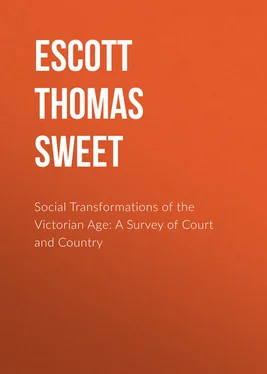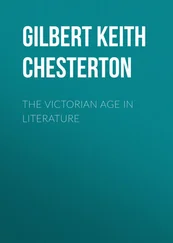One thing more about them may, however, be said. As in the case of the farmers where, with a fair measure of conciliation and tact, the occupiers of the soil find their official intercourse with its tillers unexpectedly harmonious, so as regards the relations between the villagers and the clergyman, in the position of the latter as the spiritual, and often inevitably to a great degree the temporal, head of the community. Briefly stated, the effect of the Parish Meeting, or Parish Council, is to restore to the villagers certain of the rights which, in the old Manor Courts, they had possessed. Where the clergyman combines with the practical sense of an educated man a freedom from a suspicious antipathy to the civic activities of his flock, there is not only no jealousy of the parson’s intervention in the deliberations of the parish hall; but the experience which he is likely to bring to the work is welcomed by the councillors as a valuable aid to their discussions. If, when standing for a seat on the council, the rector issues an address savouring of dictatorial self-assertion; if from his pulpit he prescribes a plan for the conduct of these elections; the reverend gentleman may find himself at the bottom of the poll. When, however, he deals with his parishioners on the assumption of their equality in all non-religious matters with himself, he disarms or prevents jealousy. He has a fair chance of being chosen by acclamation to the president’s chair at the little Board. 26 26 E.g. In a typical Surrey village, where there are no Nonconformists, the Chairman is the Vicar, but of 38 Gloucestershire parishes, where dissenters abound, only in two or three.
Parish Councils have for the first time in the rural history of England developed a sense of responsibility among those to whom a decade ago the idea of rural citizenship, with obligations as well as rights, was unintelligible. They have, therefore, impressed the minds of those concerned in them with some sense of power. Thus far, no tendency has been displayed to use that power in a revolutionary fashion. A body which, like the average parish parliament, numbers from five to eleven, is not likely to prove a tempestuously democratic, or violently revolutionary assemblage. Finally, though, on the requisition of three members to the chairman the council may be convened at any time, its actual convention is never brought about more than thrice, and seldom more than once in a twelvemonth. Not the least good which this institution carries with it in most neighbourhoods is its creation of wider, less mean, more liberal interests in daily life, and with these interests, subjects of conversation for the village community more generous than private affairs of individual households; – what Hodge, the ditcher, does so late at night in the neighbourhood of the squire’s game preserves; how much money the carpenter’s wife paid for her new bonnet; or how her daughters afford so gaudy a display of Sunday finery. That the new machinery has thus far worked with less friction than might have been expected may be inferred from the statistics courteously forwarded to the present writer from the Local Government Board under date August 7th 1896. As has been said already, the Imperial authority at Whitehall acts as arbitrator in all cases of difference between the popular Parish Councils and the more exclusive County Councils as to the acquisition of land for allotments. At the time now mentioned, it was the calculation of the President of the Local Government Board that four cases had occurred of appeals by Parish Councils against the refusal of the County Council to make the allotment order; and that in fourteen cases in which orders have been made by County Councils, eight protests against them have reached the Local Government Board from persons immediately interested.
Ascending from the lowest deliberative unit in the new scheme of local self government one passes from the Parish Council to the District Council. If it can be questioned whether the average villager as yet fully appreciates the gift of power made to him by the legislature in 1894, no such doubt can exist as to those bodies that are a little higher in the deliberative scale, the District Councils. The local parliament in the parish hall may sometimes be unattended by a single cottager. The District Council, if it be not as yet popular, is at least never neglected. Seats on it were from the first objects of local ambition. This is only what might have been expected in an age, a marked feature of which is the quickened interest of all sections of the community in whatever affects the health or comfort of the labouring classes. The District Council, as its name implies, has a more than parochial dignity. Its jurisdiction is practically commensurate with the sphere of the old Rural Sanitary Authority. The relief of pauperism however, forms a first and special care of this body, the members of which are also the Guardians of the Poor. Its place of assembly is the chief small town of the neighbourhood; not indeed the County town, but generally a convenient town where there happens to be a railway station. The District Council has already contracted certain associations of local fashion. The ladies of the country side have entered warmly into its business, and often constitute a majority of its most active members. There is, of course, the complaint of impulsiveness brought against the District Councillors. Thus the domestic idea is regarded by them with more respect than it secured from their predecessors, the Boards of Guardians. Guardians were elected by the plural vote of the larger ratepayers. They had, moreover, to satisfy a property qualification in their own persons. District Councils in theory know nothing of, and in practice are affected little by, such conditions. The ex-officio magistrate, without which no Board of Guardians was complete, is systematically absent from the new District bodies. The personnel of the new Councils, which occupy a place midway between the Parish and the County assemblies, presents a notable contrast to that of the superseded Boards of Guardians. County magistrates are not, in virtue of that office, ordinary members of these bodies, which are almost solely elective. The dignity of the body, however, is well maintained. The chairman of the District Council becomes, in consequence of that position, a County magistrate with powers as plenary as if he were the nominee of the Lord Lieutenant. Sometimes, of course, the chairmen of the District bodies are already magistrates. That is, however, the exception. There now exist in the United Kingdom about a thousand elective magistrates, being chairmen of District Councils. By far the greater part of these are new to their legal responsibilities. A few are working men. One District Council in Northamptonshire is presided over by the master of a small railway station on the Midland line. Another has for its chairman an agricultural labourer; a third is controlled by an ex-policeman; a fourth by one who supports himself on the cultivation of sixteen acres of land. The effect of popular election is not limited to the discharge of those duties connected with pauperism and sanitation that are the primary concern of the District bodies. Assessment committees, and school attendance committees are both drawn from the District Councils. The latter of these, it is generally admitted, have done their work better since they ceased to be composed exclusively of employers of labour, and since they have become representative of industry as well. 27 27 Urban District Councils have taken the place of Local Boards; they are in fact town councils of those districts which are not incorporated into municipalities.
The Poor Law, which has been in force during the whole of the Victorian era, was, as scarcely needs to be said, among the earliest achievements of the Reformed Parliament. Bitter and prolonged as was the resistance to portioning out the country afresh for the relief of pauperism instead of congregating the poor of each parish in their own workhouse, the beneficent results of the change have long since been universally admitted. ‘The new Bastilles’ was the name first given to the unions which the Act of 1834 created, by the opponents of the Bill, with a view to excite popular feeling against it. Only the most hardened paupers, who objected on principle to industry of any kind, complained of the modicum of labour exacted from the occupants of the new workhouses. Even these shirkers have become reconciled to some sort of industry. The improvement in the habits of the whole working class was conspicuous and immediate. Thus, as in his History of the period, Mr Molesworth points out, 28 28 Molesworth’s History of England , vol. i. p. 19.
in four unions of the Midlands, there were in 1834, 954 able-bodied paupers. In June 1836 there were only 5. All the rest were in regular work. In the county of Sussex, the most inveterately pauperized in England, there were in 1834, 6,160 paupers. The Act had not been in operation two years before this total was reduced to 124. By 1836 the Act had become operative in twenty-two counties. The average of the reduction of the rates in these was 43½ per cent. The Commissioners of Enquiry, on whose report the new legislation was based, predicted that the application of their principles would restore and improve industry, would create or confirm habits of thrift, would increase the demand for labour as well as the wages of the labourer, and generally would promote the welfare of those who lived by manual toil. The Queen had not ascended her throne when the erewhile opponents of the Measure confessed that these anticipations were already fulfilled. It was not to be expected that bodies so essentially different from the old Boards of Guardians as the District Councils are would administer the Poor Law in the same spirit or on the same principles as their predecessors. Few socio-economical questions of the day have provoked controversy so bitter, or divided skilled and conscientious partizans into such mutually envenomed factions as the conditions on which relief from the rates should be granted to the necessitous poor. The uncompromising advocates of the workhouse test system, compulsory residence, that is, within the workhouse walls, maintain that in this way only can systematic pauperization be avoided, and that so alone will the not uniformly industrious poor realize the stigma of coming upon the rates. On the other hand, it may be argued that in innumerable cases timely charity from the common fund will prevent the utter break up of a needy, but not necessarily indolent home. Paupers, it may be said, who will not work, and who are, therefore, not proper objects of compassion, are never kept by any sense of pride or shame from taking up their quarters in the local union. Thus, may it not be false economy to make absolute destitution and homelessness a preliminary condition of parochial help? On these points, those who differ will never agree. What it is now relevant to point out, is that the administrative methods of the new Councillors have very generally shown a reaction from the more stringent, and less sympathetic policy of the old Boards of Guardians. Thus, the workhouse test is far less often than formerly made the condition of poor relief.
Читать дальше












